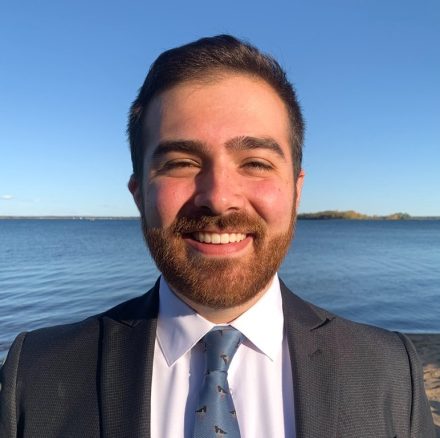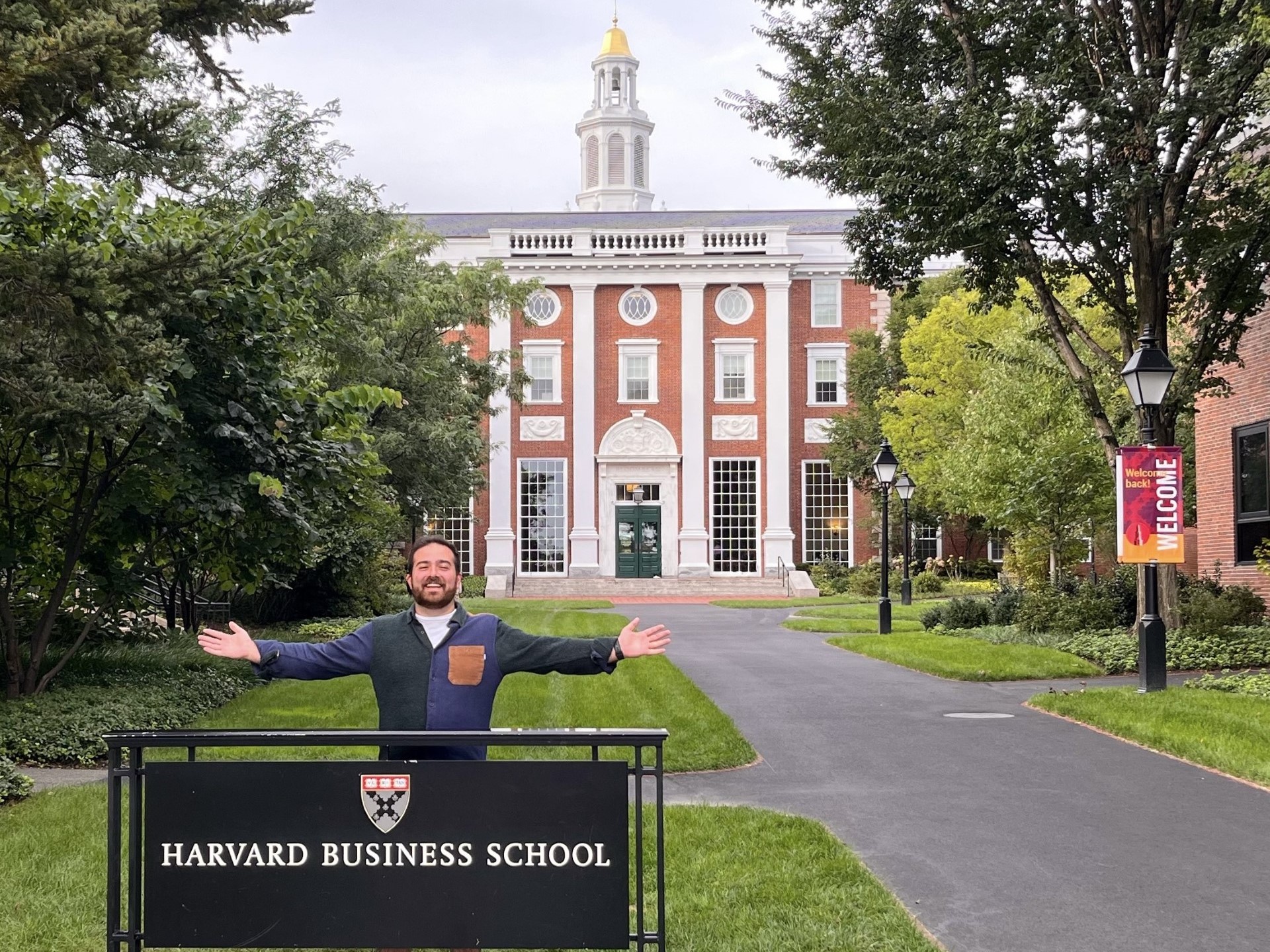One of only 10 recipients of the 2023-24 Kaplan Fellowship, Sears is focused on developing cell and gene therapies for neurodegenerative and neuromuscular diseases.
Matt Sears ’18 was recently awarded the 2023-24 Robert S. Kaplan Life Sciences Fellowship at Harvard Business School.
Sears is enrolled in the dual-degree Master of Science and Master of Business in Biotechnology program at Harvard and is one of only 10 recipients of the fellowship this year. He plans to use his studies and the Kaplan Fellowship to develop cell and gene therapies for vulnerable patients. Sears graduated from Elon University with a B.S. in biology and since has worked as a research scientist at the University of Pennsylvania and the Massachusetts Institute of Technology.
“I’m interested in exploring novel cell and gene therapies to treat neurodegenerative and neuromuscular diseases,” he said, “but I really just want to improve the lives of patients in any way I can.”

The Kaplan Fellowship encourages students in the life science disciplines to attend Harvard Business School by awarding incoming MBA students up to $20,000. Past recipients of the award have demonstrated academic science achievements and professional leadership roles in the industry. This is the fellowship’s 15th and final year, and many of the recipients — including Sears — are joint degree students in the MS/MBA Biotechnology: Life Sciences program intended to build on students’ biotech and life science knowledge and equip them with the latest business and scientific insights.
At Elon, Sears was an Elon College Fellow and Provost Scholar who completed undergraduate research projects in insect behavior with Associate Professor of Biology Jen Hamel as his mentor. At the University of Pennsylvania and MIT, he conducted research on projects related to molecular regulation of mammalian development, non-invasive potential therapy for Alzheimer’s and technology to map the brain’s architecture and connectome.
Most recently, he worked at Beam Therapeutics and helped lead the laboratory effort to develop genetic therapy for a central nervous system disease using the company’s base editing technology in collaboration with Pfizer.
“I encourage students to follow opportunities that interest them, no matter how off their current career path or challenging they may seem,” Sears said. “I was a biology major researching insect behavior at Elon, then a research lab scientist post-grad who ended up in a dual-degree program at Harvard Business School, and I’m still not quite sure how!”
Sears welcomes Elon students and alumni interested in biotechnology and life science to connect with him on LinkedIn.



